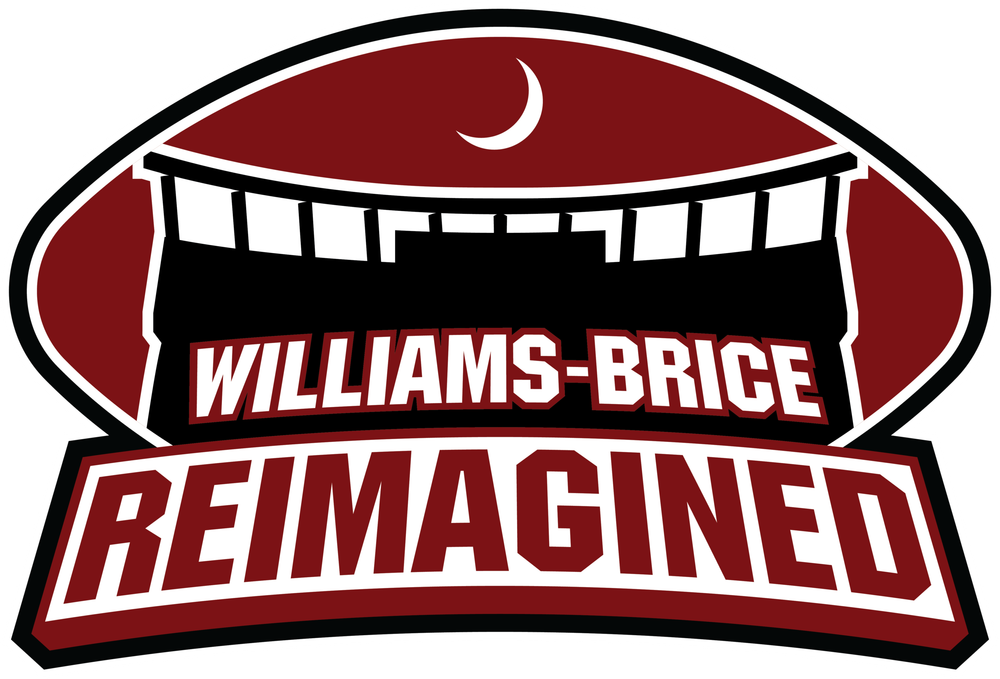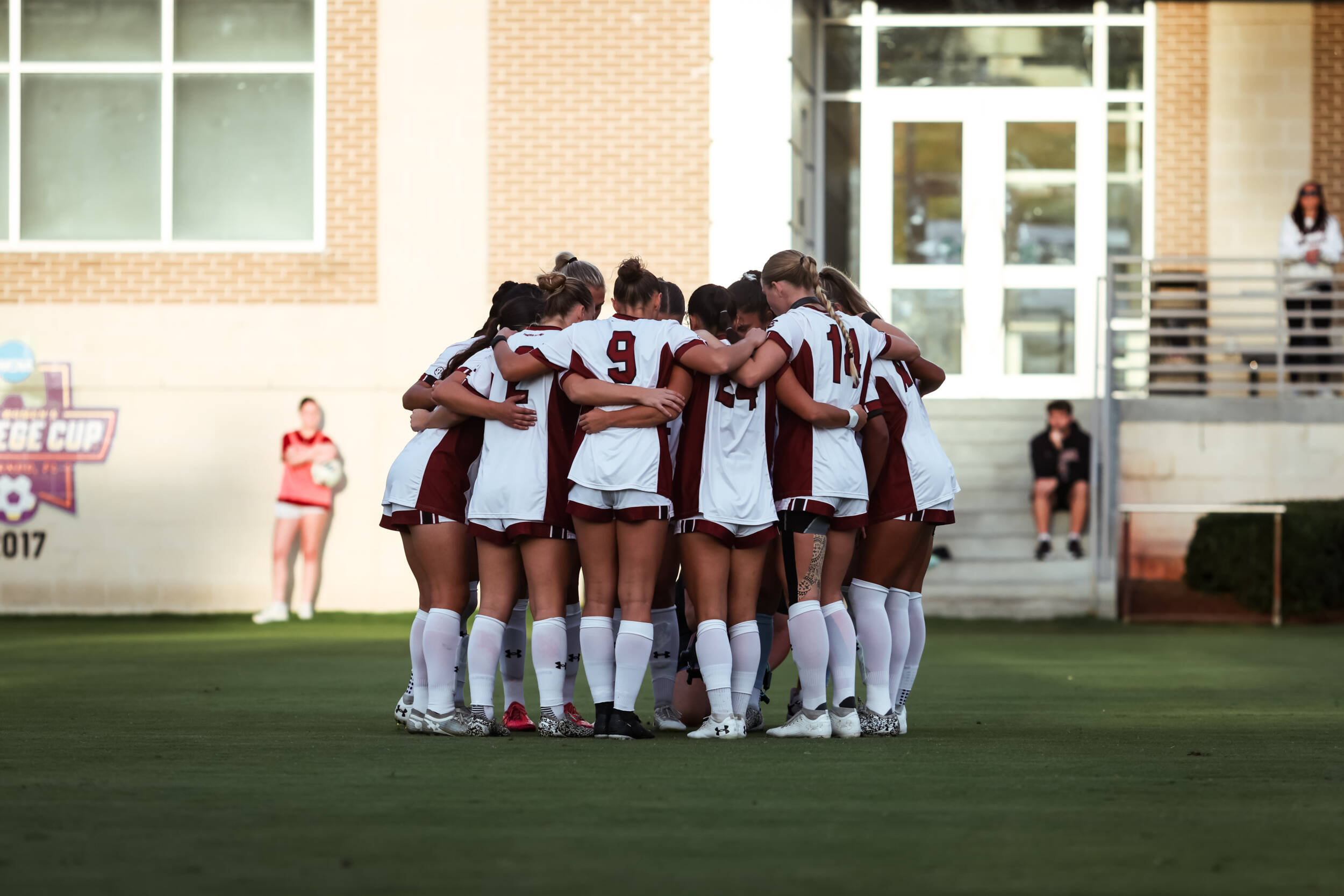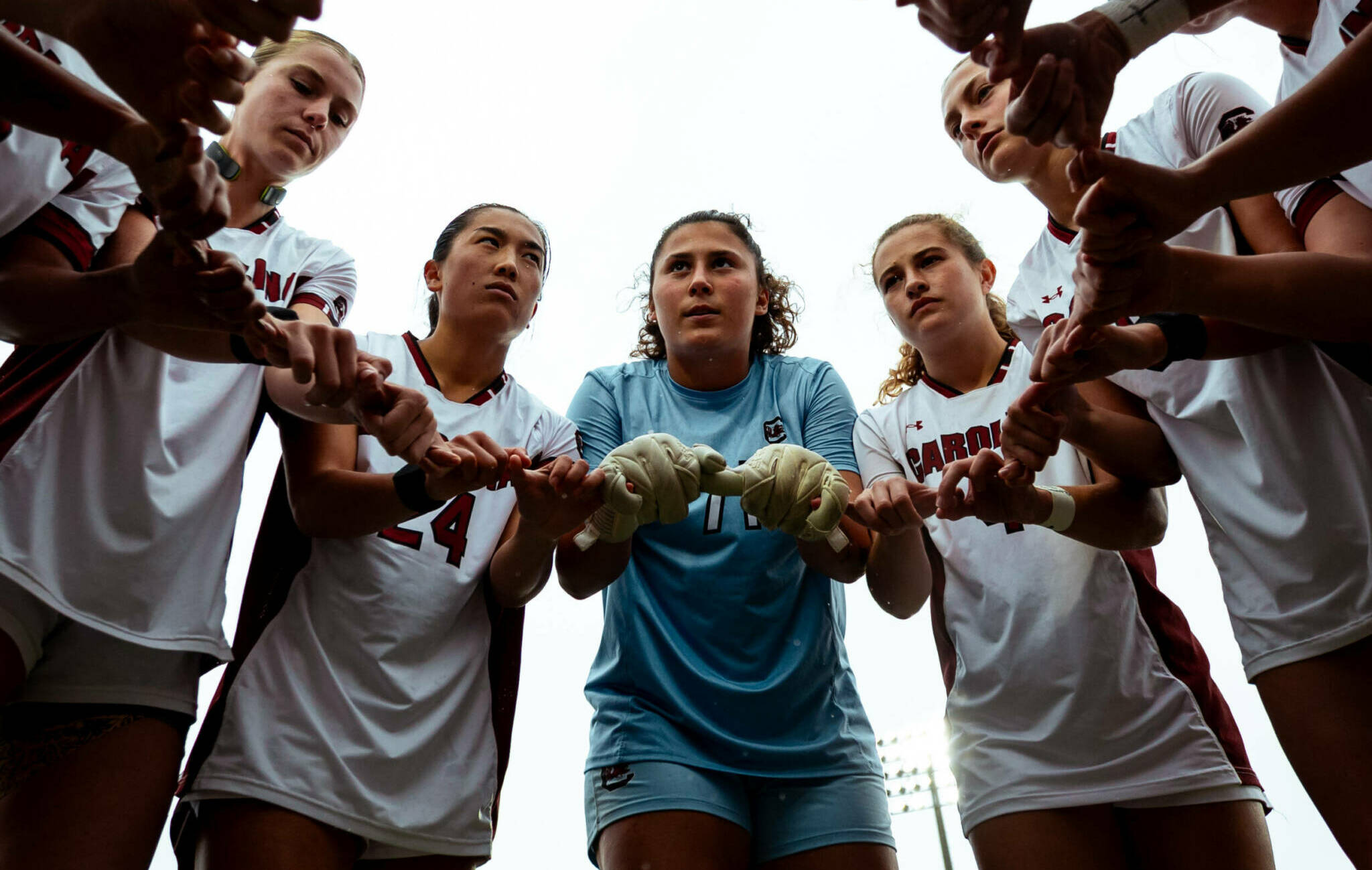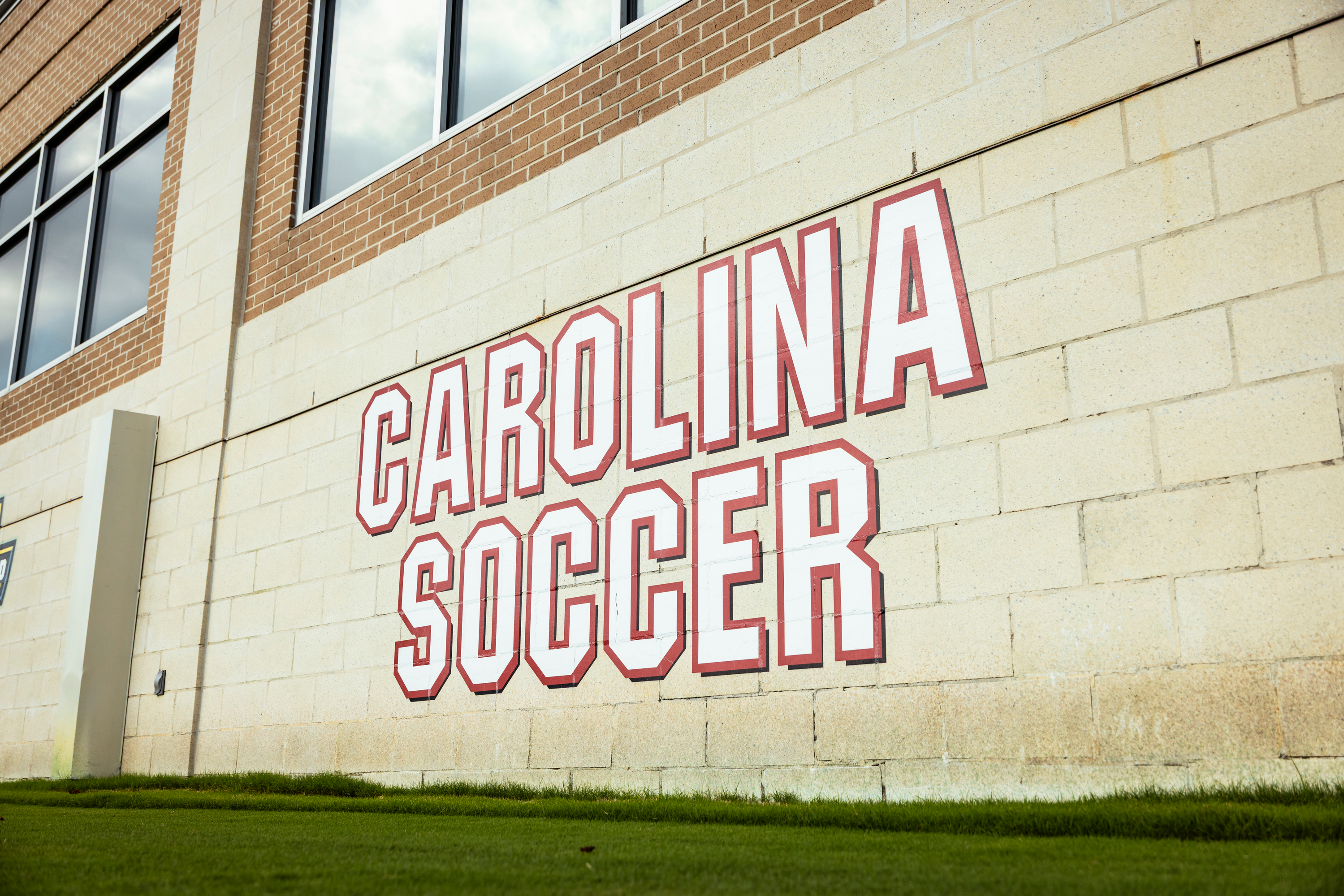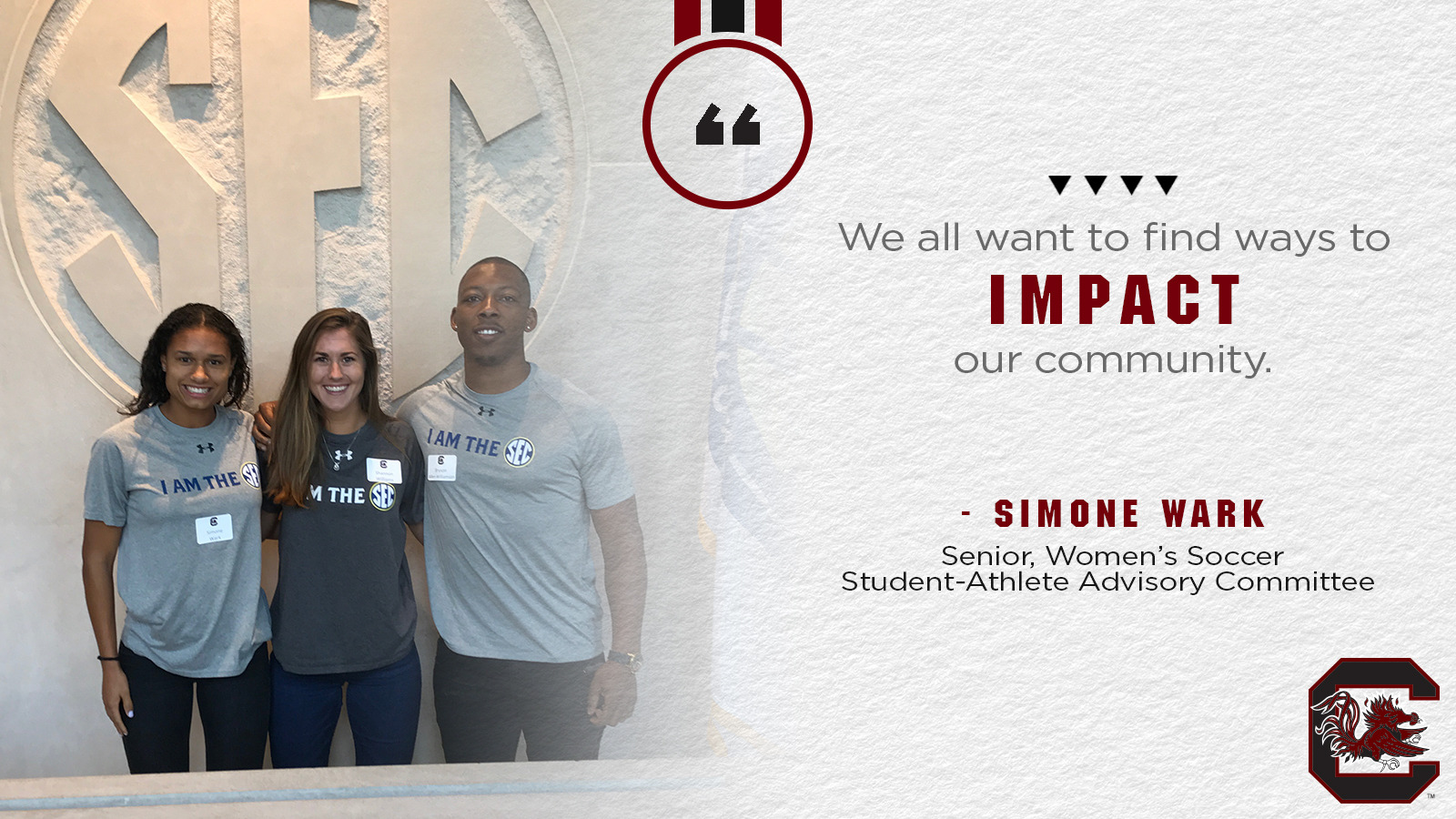
S.A.A.C. Meeting Provides Opportunity for Collaboration Among SEC Student-Athletes
Student-Athletes are active in having their voices heard by school, conference, and NCAA administrators through the Student-Athlete Advisory Committee (S.A.A.C). South Carolina student-athletes Simone Wark(women’s soccer), Shannon Williams (beach volleyball), and Bryson Allen-Williams (football) recently attended the SEC/S.A.A.C. leadership meetings at the league’s headquarters along with representatives from each of the other 13 conference schools to collaborate and hear from guest speakers.
“It’s always cool to be with tremendous student-athletes from all the other schools in the SEC,” said Wark, a rising senior, who is studying sport and entertainment management with a minor in public relations and advertising. “It’s definitely worthwhile. It’s amazing to see what everyone is doing in balancing school, athletics, and community service and seeing where they’re all going to go from here. When you have so many collaborative leaders in one place, you come out with so many good ideas that you want to take back to your school. I realized that at South Carolina, we’re ahead of schools in some areas, but we also realized there are ways we can continue to grow.”
S.A.A.C. at South Carolina is composed of two or more student-athletes from each varsity sport. Each representative serves as a liaison between the committee and his/her respective team. The purpose of the committee is to provide a voice for student-athletes within the athletics department, university, the SEC and the NCAA. Wark noted that S.A.A.C. is not an organization that simply offers lip-service when it comes to presenting issues to athletics and university administration.
“People’s concerns are being addressed” Wark said. “Some of the new legislation is a testament to that. The concerns that we’re bringing from S.A.A.C. aren’t just being pushed to the side.”
“It was a good reminder of how important mental health is for student-athletes,” Shannon Williams said.
There were two featured speakers at the event, including Rachel Baribeau, an Auburn graduate and sports radio host who regularly speaks to student-athletes about a few different topics.
“She spoke about being kings and queens and changing the narrative about how student-athletes are perceived,” said Williams, a rising senior. “It was very inspiring.”
“The presentation was about how we, as student-athletes, can have passion and purpose and use our platform to change that narrative,” Wark said. “She talked about at the end of the day, when you look in the mirror and look at decisions you’ve made, are you proud of what you’re doing? She wants to change people’s perceptions about how student-athletes interact with people. She talked a lot about having respect for others and not thinking we’re above other people. It’s important that we’re not just excelling on the field. We need to be excelling in our community and using our platform as student-athletes in maximizing opportunities to enhance things in the community.”
Galen Duncan, Vice President of Kings Academy and Professional Development for the Sacramento Kings, also had a presentation on the importance of mental health care.
“It was a good reminder of how important mental health is for student-athletes,” Williams said. “He talked about how we have so many athletic trainers for each team, and there may only be three mental health specialists for some departments. The brain is one of the most important parts of your body, so there needs to be more focus on that. He talked about how important it is to be aware of the resources you do have for mental health. I know we have a lot of support in that area here.”
“He talked a lot about mental health programming. That’s a rising issue within in the NCAA,” Wark said. “That’s one of the NCAA’s top health concerns along with concussions right now. He talked a lot about ways to be there for a teammate who may be struggling with something and be aware of the mental health services that are available at each school. It was quite astonishing to realize how far ahead we are of a lot of schools with the access we have to sports psychologists and psychiatrists. We also talked about ways to help break the stigma for those that are struggling with something mentally or have a mental illness. It needs to be more of a normal thing for people to seek help. We train our bodies so many times per week, but we’re not always doing enough to train our mind with all the stress we have with balancing school work and athletics.”
The student-athletes also had some relaxing time together with the opportunity to play rounds of Top Golf and collaborate about other issues that affect them.
“It was cool to meet so many student-athletes from all of the other schools,” Williams said. “It was good to hear about the new laws going into effect this year, and it was good to present some new ideas that we want to implement here for things such as community service and get the opinions from the S.A.A.C. reps from around the league.”
“We all want to find ways to impact our community,” Wark said. “We mentioned our Beyond Sports (Professional Development and Summer Internship) Program, and we found that not many SEC schools have something like that. The people that I’ve spoken to that are in our Beyond Sports program are really taking advantage of all the networking and professional development opportunities that are being done. There were a lot of people from the other SEC schools that were telling me they wish they had something like that, so they were going to talk to their senior staff to see if they could get something going.”


